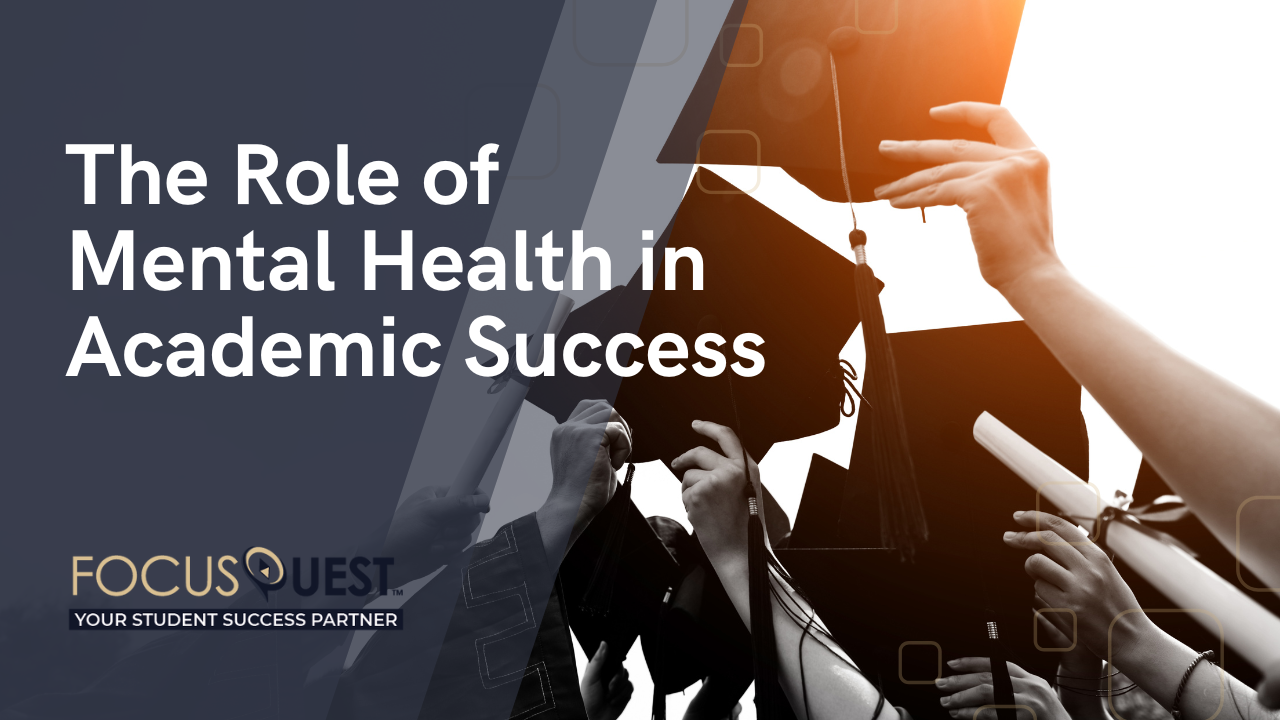Categories
Author: Mariano
August 2025
Explore Other Issues
July 2025
Explore Other Issues
June 2025
Explore Other Issues
May 2025
Explore Other Issues
Categories
First-Generation Students: Navigating Challenges, Creating Opportunities
- Post author By Mariano
- Post date May 1, 2025

First-Generation Students: Navigating Challenges, Creating Opportunities
- May 1, 2025
Share on Social Media
More Than a Classroom: A Journey of Belonging
Behind every new college student is a journey marked by courage and hope—especially for first-generation learners. According to the American Community Survey, in 2023, 36.2% of adults aged 25 and over had never enrolled in college, and 55.0% had no college degree (U.S. Census Bureau, 2025). In 2022, 23.1% of children lived in households where their parent or guardian had never enrolled in college. These statistics underscore the unique barriers first-generation students face as they embark on their educational journeys.
Why Representation Matters
Diversity in higher education is not just about inclusion—it shapes the entire learning experience. Research has shown that students in diverse academic environments demonstrate stronger critical thinking skills and are better prepared for global citizenship. When students see themselves reflected in faculty and peers, their sense of belonging and engagement deepens (Gurin, Dey, Hurtado, & Gurin, 2002).
Supporting the Whole Student
Success in higher education goes beyond academics. That’s why many institutions are prioritizing support structures such as Student Success Coaching, which has been shown to increase retention and graduation rates, particularly among underrepresented students. Programs that help learners identify the right school, the right program, and the right career path are key to closing equity gaps and fostering long-term achievement.
The Enrollment Landscape
As of the 2019–20 academic year, 25.8% of undergraduates were first-generation students. Among public 2-year colleges, that number rises to 32.7%, and at for-profit institutions, it’s 39.9%. First-generation students are also more likely to enroll at Minority Serving Institutions (MSIs)—including 26.1% at Historically Black Colleges and Universities (HBCUs) and 34.7% at Hispanic-Serving Institutions (HSIs) (National Center for Education Statistics, 2023).
Access Is Not Enough—Guidance Is Key
It’s not just about getting students through the door. True student success happens when institutions—and their partners—focus on the entire student journey. This includes helping prospective learners explore programs that align with their goals, offering personalized guidance, and ensuring they’re set up for success from day one.
The Future Starts with Equity
The path to educational equity involves more than expanding access—it requires systemic support and culturally responsive learning environments. Institutions that commit to this vision are not only empowering their students but also shaping a more inclusive and innovative future for society as a whole.
Want to learn how to better support diverse learners and improve student outcomes? Contact us at: https://www.focusquest.com/contact-us
References
Gurin, P., Dey, E. L., Hurtado, S., & Gurin, G. (2002). Diversity and higher education: Theory and impact on educational outcomes. Harvard Educational Review, 72(3), 330–366.
Postsecondary National Policy Institute. (2023). First-generation students. https://pnpi.org/first-generation-students/
U.S. Census Bureau. (2025). American Community Survey & Current Population Survey. https://www.census.gov
National Center for Education Statistics. (2023). National Postsecondary Student Aid Survey, 2019–20. https://nces.ed.gov
facts corner
Featured Articles
-
The Divine Nine: History of Black Sororities and Fraternities
-
James M. Jeter '13 Makes History as Ralph Lauren’s First Black Creative Director
-
The Surge in HBCU Enrollments: Why More Students Are Choosing HBCUs
-
Relearning How to Learn: What School Never Taught Us About Studying
-
The Role of Mental Health in Academic Success
-
The Power of Peer Support: Finding Your Study Tribe
Categories
The Surge in HBCU Enrollments: Why More Students Are Choosing HBCUs
- Post author By Mariano
- Post date April 4, 2025

The Surge in HBCU Enrollments: Why More Students Are Choosing HBCUs
- April 4, 2025
In the 2024-2025 academic year, Historically Black Colleges and Universities (HBCUs) have experienced a significant increase in applications and enrollments. Following the Supreme Court’s June 2023 ruling to end race-sensitive admissions, many Black students are choosing HBCUs for their inclusive educational environment. FocusQuest recognizes the growing importance of these institutions as they continue to provide crucial opportunities for Black students.
Why the Surge?
Several factors are driving this rise in HBCU enrollments:
-
Supreme Court’s Affirmative Action Decision: The end of race-sensitive admissions at predominantly white institutions (PWIs) has led many Black students to seek a supportive environment at HBCUs, where their identity and culture are celebrated.
-
Financial Support: Recent multimillion-dollar donations have boosted academic programs and resources at many HBCUs, making them even more appealing.
-
Safe and Inclusive Environments: Amid social unrest at PWIs, many students are gravitating towards HBCUs for their sense of community and inclusivity.
Notable Enrollment Increases
Several HBCUs have seen notable growth this year, including:
-
Bethune-Cookman University (Florida): Enrollment grew by 24%, reaching over 3,100 students.
-
Hampton University (Virginia): 17,000+ applications for the 2024-2025 academic year.
-
Shaw University (North Carolina): A 36% increase in new student enrollment.
-
Spelman College (Georgia): Welcomed 700 new students, with a lower acceptance rate reflecting growing competition.
The Future of HBCUs
FocusQuest understands the crucial role HBCUs play in shaping the educational and professional success of Black students. These institutions not only provide high-quality academic programs but also foster a sense of belonging and cultural pride. As interest in HBCUs continues to rise, their significance in the higher education landscape grows stronger.
As more students choose HBCUs, FocusQuest remains committed to supporting these institutions and ensuring that students have access to the information they need to make informed decisions about their future.
Sources:
Share on Social Media
facts corner
Featured Articles
-
The Divine Nine: History of Black Sororities and Fraternities
-
James M. Jeter '13 Makes History as Ralph Lauren’s First Black Creative Director
-
The Surge in HBCU Enrollments: Why More Students Are Choosing HBCUs
-
Relearning How to Learn: What School Never Taught Us About Studying
-
The Role of Mental Health in Academic Success
-
The Power of Peer Support: Finding Your Study Tribe
April 2025
Explore Other Issues
Categories
The Power of Connection: How Relationships Drive Student Success at HBCUs
- Post author By Mariano
- Post date March 3, 2025

The Power of Connection: How Relationships Drive Student Success at HBCUs
- March 3, 2025
In today’s fast-paced world, where automation and efficiency dominate nearly every industry, one timeless truth remains—relationships matter. While résumés and credentials play a role in career success, personal connections often open doors and create lasting opportunities. This is especially true at Historically Black Colleges and Universities (HBCUs), where the strength of relationships has been a defining factor in student success for generations.
The Relationship Advantage at HBCUs
For decades, HBCUs have cultivated a unique educational experience that prioritizes mentorship, community, and personal investment. Unlike larger institutions where students may feel like just another number, HBCUs excel at fostering meaningful connections between students, faculty, and alumni. These bonds extend beyond the classroom, shaping careers and empowering students to navigate the professional world with confidence.
At FocusQuest, we recognize that innovation in online education must complement, not replace, the deeply rooted traditions of mentorship and connection at HBCUs. As a student acquisition and success partner (SSP) firm exclusively dedicated to assisting HBCUs and Minority Serving Institutions (MSIs), we help develop online educational programs that expand access while maintaining the personal relationships that set these institutions apart.
Faculty members at HBCUs don’t just teach—they invest in their students’ futures. They take the time to understand their ambitions, guide them through challenges, and advocate for their success. When a student needs a letter of recommendation, it’s not a generic formality—it’s a deeply personal endorsement based on years of mentorship and encouragement.
This emphasis on relationships is especially critical for first-generation college students, who often face unique challenges in higher education. Many are navigating systems that weren’t originally designed with them in mind, making mentorship and advocacy essential components of their success. HBCUs provide a supportive environment where students receive not just academic instruction but also the confidence and network they need to thrive.
Beyond the Classroom: A Lifelong Network
The strength of HBCU relationships doesn’t end at graduation. Alumni remain deeply connected to their institutions, often returning as mentors, donors, and recruiters. This commitment to community creates an intergenerational support system that continues to uplift students long after they leave campus.
HBCU homecomings, for example, are more than just celebrations—they are reunions of a family bonded by shared experiences and a commitment to collective progress. These gatherings reinforce the idea that success is not just about individual achievement but about lifting others as we climb.
For students, this network is invaluable. Whether it’s securing internships, job opportunities, or professional mentorship, the relationships formed at HBCUs create pathways to success that extend well beyond a degree. These personal connections ensure that students don’t just enter the workforce but do so with confidence, support, and a built-in network of advocates.
Preserving What Makes HBCUs Special
In an era where higher education faces increasing pressure to scale up and streamline processes, HBCUs must resist the urge to conform to a one-size-fits-all model. While affordability and access are crucial, they should never come at the cost of the personal connections that make these institutions unique. HBCUs are not simply degree-granting institutions—they are incubators of leadership, innovation, and community.
As conversations about the future of higher education continue, it is essential to highlight the unparalleled value of HBCUs. These institutions are not relics of the past but blueprints for the future—demonstrating that education is most impactful when built on relationships.
At FocusQuest, we understand that student success is about more than coursework and credentials—it’s about connections. By leveraging innovative online programs without sacrificing the personal touch, we ensure that students have the mentorship, resources, and relationships they need to succeed in an evolving educational landscape.
In the end, it’s not just about résumés. It’s about relationships. And at HBCUs, those relationships are changing lives every single day.
Share on Social Media
facts corner
Featured Articles
-
The Divine Nine: History of Black Sororities and Fraternities
-
James M. Jeter '13 Makes History as Ralph Lauren’s First Black Creative Director
-
The Surge in HBCU Enrollments: Why More Students Are Choosing HBCUs
-
Relearning How to Learn: What School Never Taught Us About Studying
-
The Role of Mental Health in Academic Success
-
The Power of Peer Support: Finding Your Study Tribe




